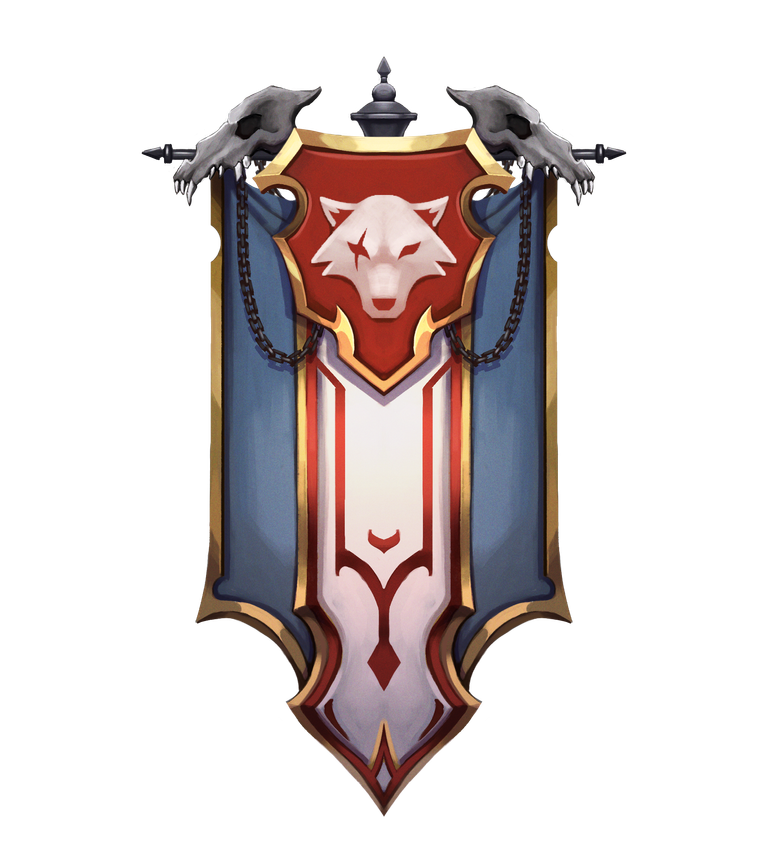Splinters of Praetoria - Canicush


Welcome to the immersive lore of the Splinterlands. In this series of articles, we present a comprehensive exploration of the major splinters of Praetoria. Each week, you’ll learn about a new splinter: its governance, economy, races, religions, culture, and more. Gain a deeper understanding of the Splinterlands and the splinters that shape it so the next time you see Eternan Brune or an Imperial Knight on the battlefield, you’ll know exactly what you’re up against.
Visit SplinterLore for a complete list of the major splinters, both published and yet to be released!


Canicush
“For the pack.”
Overview
Nestled on the northern shore of Lake De’lai within the Central Fire’s Southern Highlands, the city-state of Canicush is a republic and direct democracy.
Governance
Folcgemots
The wheels of Canicush's governance turn through a trifold structure of Folcgemots: public assemblies for communication, debate, and voting on executive, legislative, and judicial affairs. They are presided over by the Alpha Magistrate, who dictates matters of procedure and legality. The Alpha Magistrate wields considerable power but is kept in check by veto power exercised by the Folcgemots. Only a lupi may serve as the Alpha Magistrate.
The three types of Folcgemots are:
- The Open Folcgemot is open to all Canicush citizens. It is used for communication, to hear debates, and to conduct other business before the General Folcgemot and Folcgemot Select.
- The General Folcgemot is open to only Canicush’s lupine citizenry. It is used to elect the Alpha Magistrate; enact, ratify, and abolish laws; punish those who break them; declare war and peace; create and dissolve alliances; and other matters of governance.
- The Folcgemot Select is open to only a faction of Canicush’s lupine citizenry (for example, the military, tradesfolk, or farmers) to vote on matters pertinent to their specific class.
Economy
Agriculture, fishing, and craftsmanship form the backbone of Canicush's economy. Crops primarily consist of grains, berries, and root vegetables, and Lake De’lai provides ample opportunities for fishing, aquaculture, and trade, with the De’lai River serving as a major trade route for the Southern Highlands. Meanwhile, artisans sell their wares—ranging from peltweaves and other textiles to arms and armor—in Canisan’s bustling market, which sprawls along the shore of Lake De’lai.
Demographics
Races
About half of Canicush’s citizenry is composed of lupi, while the other half is mostly a mix of other canisan races.
Religions
Canicush’s citizenry primarily pays tribute to the following deities:
- Lunaki, the Sister Moon Goddess
- The Brotherhood, Gods of Fellowship and Bounty
- Khymia, Goddess of Justice
- Gryyja, Goddess of Protection
Culture
Loyalty, bravery, and the unbreakable bond of the packs form the basis of Canicush’s culture. These values dominate the city-state’s literature and philosophy, which are primarily oral traditions and explore themes such as community, duty, and the balance between individual freedom and the greater good.
Buildings are constructed of stone, timber, or a combination of the two. Most are circular, with wide entryways, domed roofs, and spacious communal areas. The city-state itself is surrounded by a massive wall, with heavily fortified gates on its north and south flanks. Outside the southern gate lies Canicush’s market and harbor.
Festivals are a spectacle of color and sound, celebrating the cycles of the moons, the changing of the seasons, the bonds of the pack, and everything in between. Dances emphasize canisan grace and agility, with music underscored by a steady drumbeat that symbolizes the heart of the pack.
Meals are rarely a solitary affair. Instead, they are shared with family, friends, associates, neighbors, and wider circles as well. Dishes, which incorporate local game, fish, and crops, are served on large platters and shared among all in attendance.
Sports, too, emphasize the pack rather than the individual. Popular sports include choule, harpastum, lacrosse, and battles royal.

